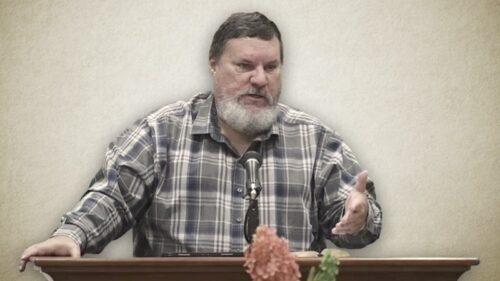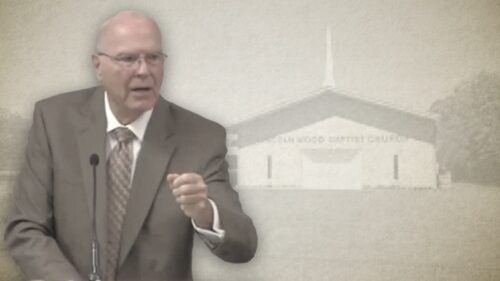-
The Mountain Peaks Of Hope
FOR A COMPLETE ORDER OF WORSHIP, INCLUDING BIBLE READING, HYMNS AND SERMON...
-
A Church Without An Under-Shepherd
FOR A COMPLETE ORDER OF WORSHIP, INCLUDING BIBLE READING, HYMNS AND SERMON...
-
My Prototype Of The Sovereign Grace Framework
I use for the backdrop of my teaching ministry something called the Framework of Sovereign Grace. It is a diagram designed to illustrate the masterplan of God for the ages. This diagram emerged around ten years ago while expounding the ninth chapter of Paul's letter to the Romans. Initially, it served as an aid to my own understanding of sovereign grace and the biblical covenants. However, it wasn't long before I incorporated it into my teaching ministry. Visual aids have always been an essential tool for my learning, and while not everyone may be a fan, I am encouraged by men such as William Perkins and John Bunyan, both of whom illustrated their framework of teachings with a diagram. My framework differs from theirs, but…
-
The Origin Of The Reformed Baptist Movement In America
How often do we hear the Reformed Baptists (RB) lay claim to the historic legacy of the Particular Baptists (PB), as if the two groups are one and the same? The English RB's lay claim to this heritage based on their requisition of historic PB chapels and the imposition of 'reforms' they have made to the churches. The American RB's lay claim to it based on their perceived oneness with the seventeenth century PB's, responsible for drawing up the 1689 Confession. Since the RB's are 'confessional', subscribing to the 1689 as the standard statement around which their movement is solidified, so it is assumed the PB's have always been 'confessional', subscribing to the same statement for the same reason. Henceforth, if the PB's were 1689…
-
28 Bible Doctrine – A Devotional Review
Let us take a few minutes to review the topics covered. Our first study answered the question, “What Is A Framework Of Doctrine?”, where I attempted to show the importance of formulating a systematic overview of the various branches of theology, or Bible teachings. Our second study answered the question, “What Do These Labels “Arminianism”And “Calvinism” Represent?”, where I provided a basic definition for these theological nicknames. Our third study answered the question, “Do These Teachings Originate With Arminius And Calvin?”, where I traced Arminianism and Calvinism to the garden of Eden, showing that Arminianism is rooted in free will humanism, whereas Calvinism is rooted in free grace salvation.
-
Bible Doctrine—A Devotional Review
FOR A COMPLETE ORDER OF WORSHIP, INCLUDING BIBLE READING, HYMNS AND SERMON...








